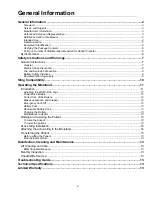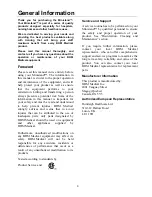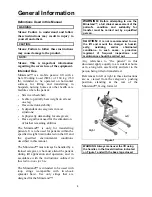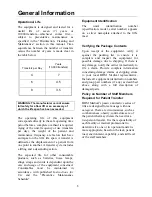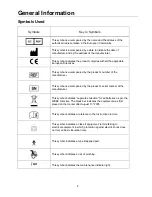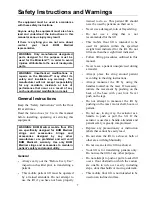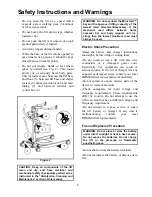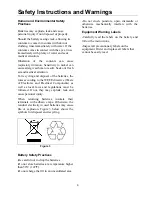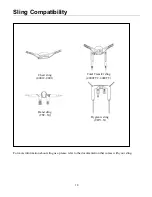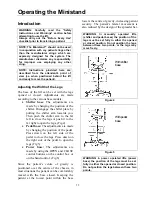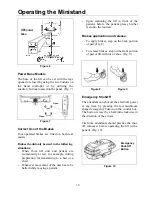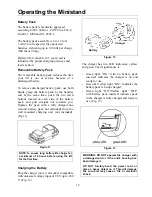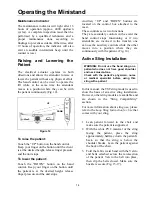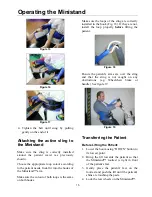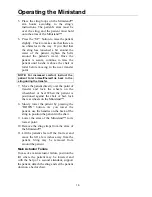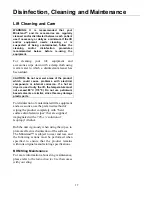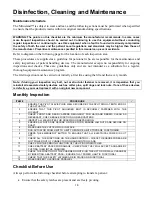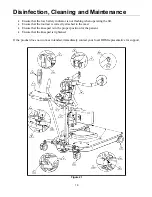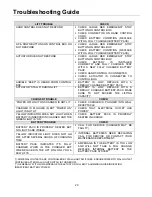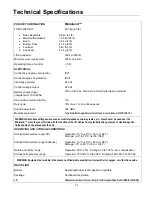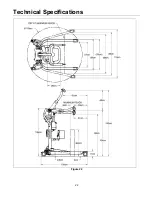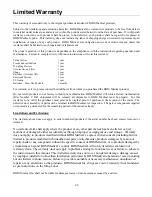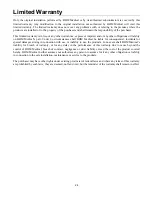
Safety Instructions and Warnings
9
Human and Environmental Safety
Practices
Batteries may explode, leak and cause
personal injury if not disposed of properly.
Should the battery casing crack, allowing its
contents to come into contact with skin or
clothing, rinse immediately with water. If the
contents comes in contact with the eyes, rinse
immediately with plenty of water and seek
medical attention.
Inhalation of the contents can cause
respiratory irritation. Sensitivity to nickel can
cause allergic asthma to result. Seek out fresh
air and medical attention.
For recycling and disposal of the batteries, the
rules according to the WEEE directive (Waste
of Electronic and Electrical Components) as
well as local laws and regulations must be
followed. If not, they may explode, leak and
cause personal injury.
When returning batteries, insulate their
terminals with adhesive tape. Otherwise, the
residual electricity in used batteries may cause
fire or explosion. Figure 3 below shows the
symbols for disposal and recycling.
Figure 3
Battery Safety Practices
•
Be careful not to drop the batteries.
•
Do not store batteries at a temperature higher
than 50ºC (122ºF).
•
Do not charge the lift in an unventilated area.
•
Do not crush, puncture, open, dismantle or
otherwise mechanically interfere with the
batteries.
Equipment Warning Labels
•
Carefully read the labels on the battery and
follow the instructions.
•
Inspect all precautionary labels on the
equipment. Order and replace all labels that
cannot be easily read.



